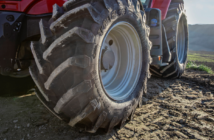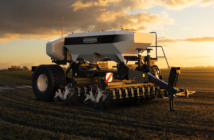The change to Igus bearings has brought significant benefits to reliability claim manufacturer Sumo.
Igus is a German-owned motion plastics manufacturer that creates lubrication-free polymer bearings, among a host of other products for various industries.
According to Sumo’s quality manager, Tim Lord, the change to Igus bearings from Oilite powdered bronze bearings has made a noticeable difference in reliability.
“We’ve seen almost no warranty claims when it comes to bearings since moving to the Igus range,” he says. “We use the bearings at the wing articulation points. After a certain level of work, we would expect to see wear around the 90deg of movement, but these don’t seem to have this problem.
“When we get machines in for refurbishment, we would expect to change the bearings as a matter of course,” he adds.
“We recently had a five-year-old machine in for a refurb and when we checked the Igus bearings, they were like new.”
Sumo uses the TX1 and TX3 Igutex bearings, previously branded as part of the Iglidur product range. These are developed using a composite material using a blend of fibres and resins.
Instead of being injection moulded, the materials are wound together creating two layers; a gliding layer that enables the bearing to move without lubrication, and a base that protects the inner layer.
Igutex specialist Sam Newton says the product range is able to withstand up to 180 megapascals (MPa) of pressure, as well as temperatures from -60C up to 120C.
“This makes them ideal for industries that work in difficult conditions, such as agriculture. If you look at our TX2 range, that has a gliding layer that is eight microns thick, which our tests have shown relates to a kilometre of bearing movement before a replacement would be needed.
“If you look at the short distance that the bearing on the wing of a cultivator would move, that translates to multiple seasons of uninterrupted work.”
Both Sumo and Igus say the benefits aren’t just an extended maintenance period. Because the entire Igus portfolio does not require lubrication, this results in more efficient manufacturing as grease channels and nipples do not need to be drilled into the machines.
This then benefits the end user as multiple greasing points are eliminated from daily maintenance schedules, substantially reducing time spent and the amount of lubrication purchased and used.
“Igus bearings cost us about 30% more than standard metal bearings,” says Tim. “However, this is a tiny percentage of the overall cost of the machine and is outweighed by the other benefits.”




